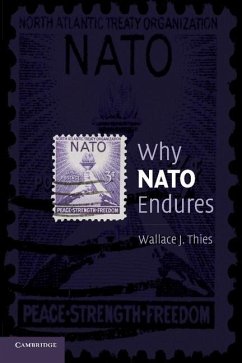Why NATO Endures examines military alliances and their role in international relations, developing two themes. The first is that the Atlantic Alliance, also known as NATO, has become something very different from virtually all pre-1939 alliances and many contemporary alliances. The members of early alliances frequently feared their allies as much if not more than their enemies, viewing them as temporary accomplices and future rivals. In contrast, NATO members were almost all democracies that encouraged each other to grow stronger. The book's second theme is that NATO, as an alliance of democracies, has developed hidden strengths that have allowed it to endure for roughly 60 years, unlike most other alliances, which often broke apart within a few years. Democracies can and do disagree with one another, but they do not fear each other. They also need the approval of other democracies as they conduct their foreign policies. These traits constitute built-in, self-healing tendencies, which is why NATO endures.
Dieser Download kann aus rechtlichen Gründen nur mit Rechnungsadresse in A, B, BG, CY, CZ, D, DK, EW, E, FIN, F, GR, HR, H, IRL, I, LT, L, LR, M, NL, PL, P, R, S, SLO, SK ausgeliefert werden.









